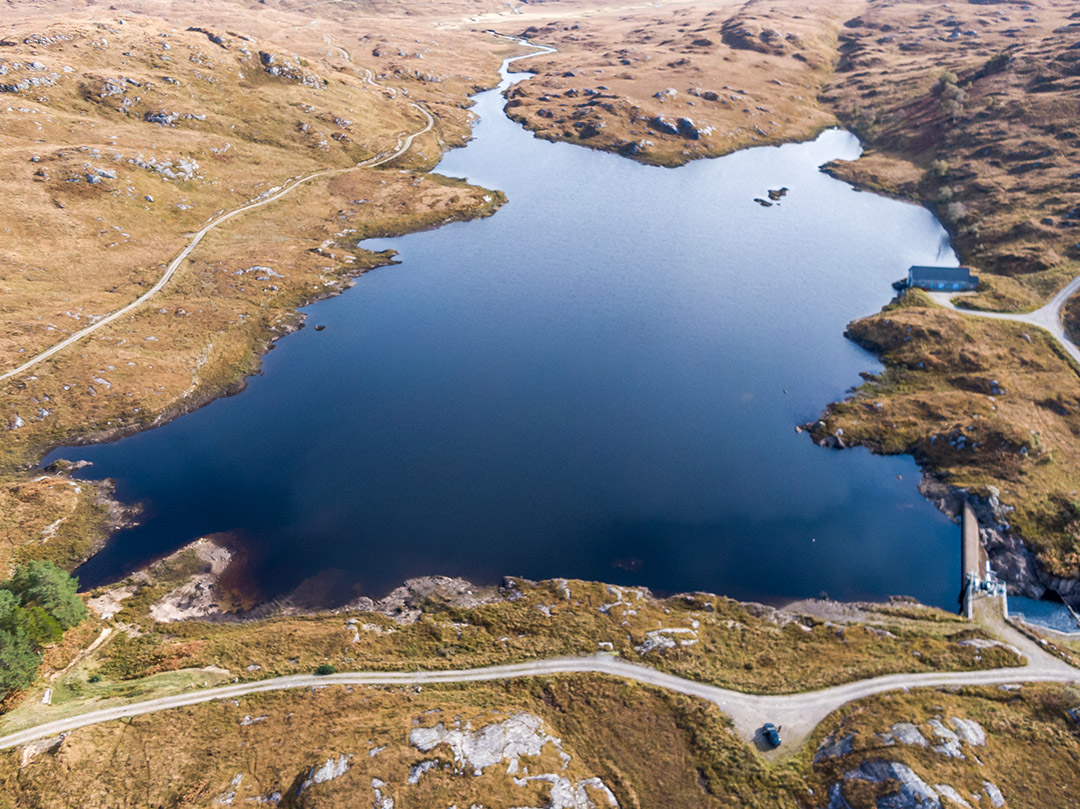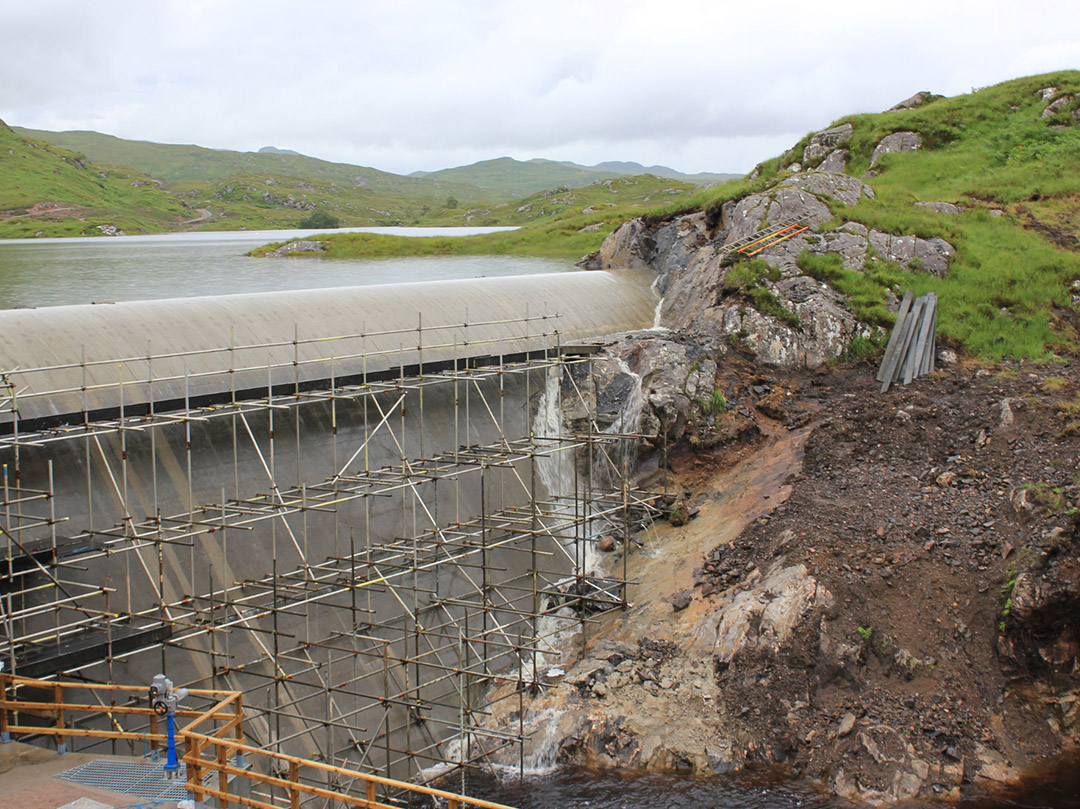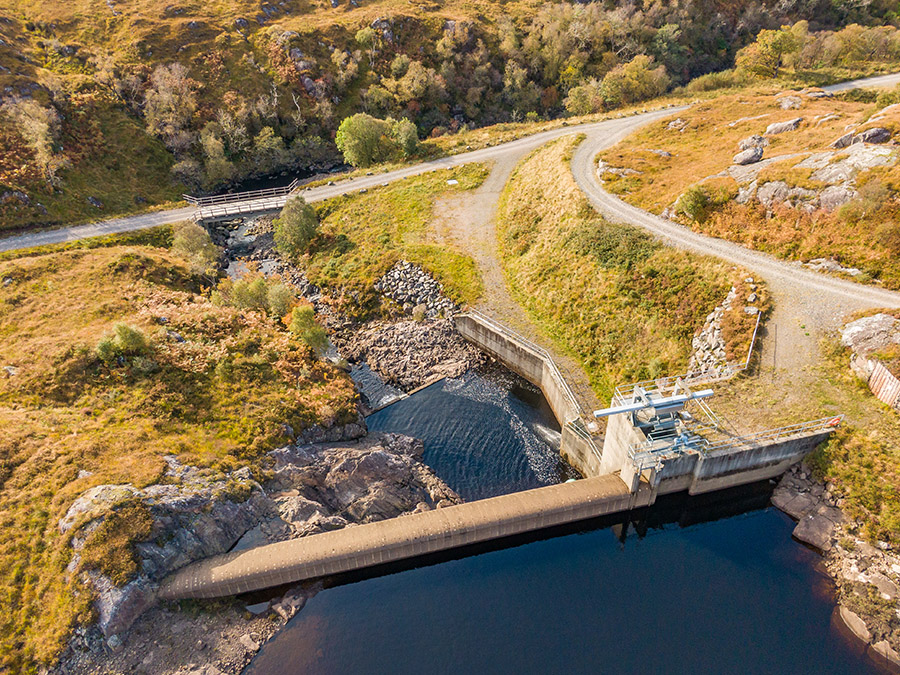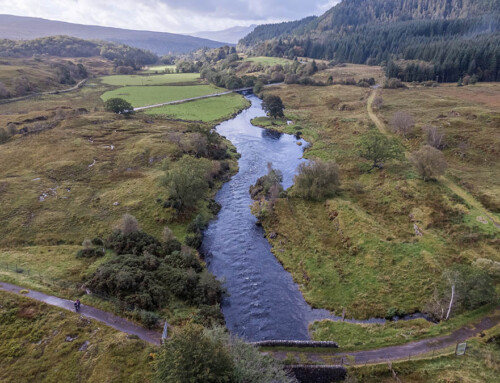Press & Journal Article, May 2025
In the difficult years after the Second World War, a small band of determined politicians and engineers – led by Tom Johnston, then secretary of state for Scotland – conspired to go into some of the country’s most inhospitable places and build dams, tunnels and pipes to harness our water and convert it to power.
They built temporary railway lines to move labour to and from the hills, pulley systems were developed to shift concrete hundreds of metres up glens and in some cases, they drove long tunnels through mountains such as Ben Vorlich on the northern shores of Loch Lomond – all in the face of the unpredictable Scottish weather.
Their names may not adorn tea towels and textbooks like Telford, Watt, Logie Baird, Napier and Clerk Maxwell, but they follow the same tradition. Their vision laid the foundations for Scotland’s hydro power industry, which provides clean electricity to Scotland every day.

Our mountain landscape, right across the Press and Journal circulation area, is peppered with secluded dams that began in the minds of engineers whose foresight should earn gratitude from us all.
Like many people running businesses in rural Scotland – in my case, in the Morvern Peninsula on the west coast – I am, in a modest way, inspired by those pioneers.
More than 90 inches of rain falls on Ardtornish every year – and we use it to spin turbines and generate electricity in a way that doesn’t damage the environment. The rain fills rivers and lochs, and the weight of water under pressure that barrels down our pipelines moves the turbines and generators. The electricity flows.
That energy is sold to the national grid, providing Ardtornish with the income to sustain a working farm and rural business employing 25 people.
The Scottish public, in turn, received a regular supply of green, clean energy.
But there is a threat to this future and to many small-scale hydro schemes, which would make those early innovators wince. Scotland’s new generation of small-scale hydropower producers are held back by a Scottish Government decision to use Westminster legislation to penalise some hydro producers. They are charged shockingly excessive business rates.
This year, our small business will pay almost half a million pounds in rates – on our hydro schemes alone.
Remote communities such as this are the ones the Scottish Government says it wants to support. Repopulating remoter rural areas is a priority, they claim, but they were no help at all when one-fifth of our 25-strong workforce faced redundancy due to the capricious decisions of Scottish Government ministers.
The remedy is in their hands. After Brexit, the UK Government passed an act that repatriated an important area of business policy previously governed by the blunt EU instrument known as state aid.
State aid is no more. The new act gives new powers to the Scottish Government and our local authorities. They can now relieve the hugely excessive rates on hydro, by awarding rates relief to all small-scale hydro producers.
Scotland has had that power since the new law was enacted in 2022. Yet ministers, and councils under Scottish Government direction, have chosen not to use it.
We have more opportunities to develop hydro power here at Ardtornish. Our hydro team retains the same ambition that led us to build five hydro schemes in the six years to 2017. We borrowed £15 million to do it – taking a big risk for a small business.

But with this treatment, the message from government is clear – if you’re a rural business owner, taking risks to increase Scotland’s energy self-sufficiency and journey to net-zero, ministers will come after you for the proceeds.
The mindset – which affects many areas of innovation in public life – appears to be short termism. Frustrating progress and blocking change is taking priority over Scotland’s long-term needs.
The harsh truth is that further investment in hydro is deterred – with improved energy security postponed, while skilled jobs in fragile communities are lost.
The pioneers of Scotland’s hydro power are being done an enormous disservice.
Hugh Raven, Managing Director at Ardtornish Estate Company








